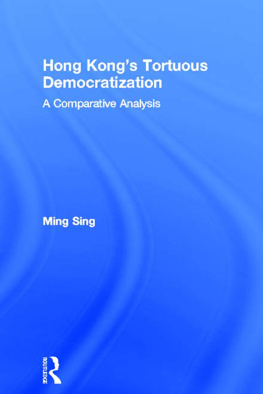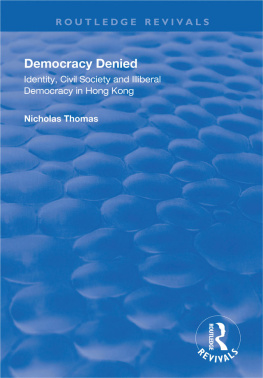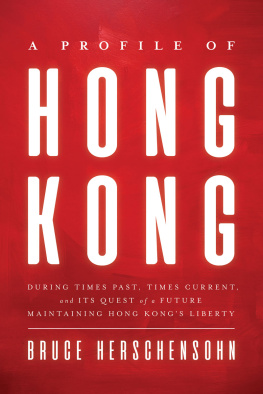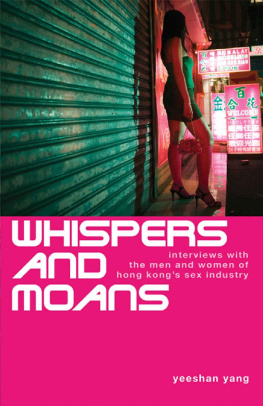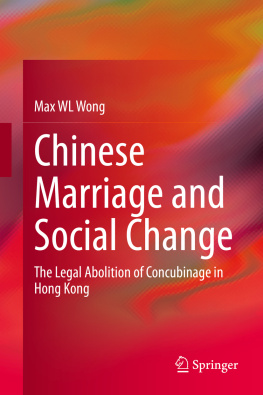Hong Kongs Tortuous
Democratization
This book raises interesting questions about the process of democratization in Hong Kong. It asks why democracy has been so long delayed when Hong Kongs level of socio-economic development has become so high. It relates democratization in Hong Kong to wider studies of the democratization process elsewhere, and it supplements the received wisdom that democracy was delayed because of colonial rule and by the opposition of China with new thinking, for example, that Hong Kongs quasi-bureaucratic authoritarian political structure vested power in bureaucrats who refused to allow top-down democratization; a politically weak civil society and a non-participant political culture that crippled bottom-up democratization; plus the division between pro-democratic civil society and political society.
Ming Sing pursued his postgraduate study at Oxford and Yale University and is an Associate Professor at the City University of Hong Kong. He is the author of Hong Kong Government and Politics (Oxford University Press, 2003). His current research is on comparative democratization in Asia and elsewhere.
RoutledgeCurzon Contemporary China Series
1 Nationalism, Democracy and National Integration in China
Leong Liew and Wang Shaoguang
2 Hong Kongs Tortuous Democratization
A comparative analysis
Ming Sing
First published 2004
by RoutledgeCurzon
11 New Fetter Lane, London EC4P 4EE
Simultaneously published in the USA and Canada
By RoutledgeCurzon
29 West 35th Street, New York, NY 10001
RoutledgeCurzon is an imprint of the Taylor & Francis Group
2004 Ming Sing
This edition published in the Taylor & Francis e-Library, 2005.
To purchase your own copy of this or any of Taylor & Francis or Routledges
collection of thousands of eBooks please go to www.eBookstore.tandf.co.uk.
All rights reserved. No part of this book may be reprinted or
reproduced or utilized in any form or by any electronic, mechanical,
or other means, now known or hereafter invented, including
photocopying and recording, or in any information storage or
retrieval system, without permission in writing from the publishers.
British Library Cataloguing in Publication Data
A catalogue record for this book is available from the British Library
Library of Congress Cataloging in Publication Data
A catalog record for this book has been requested
ISBN 0-203-18040-2 Master e-book ISBN
ISBN 0-203-67055-8 (Adobe eReader Format)
ISBN 0-415-32054-2 (Print Edition)
Foreword
Scholars have found it difficult to incorporate Hong Kongs experience into theories of comparative politics. According to some influential arguments, a society with Hong Kongs high per capita GDP, large middle class, and modernistic culture should develop a citizenry that is politically aware and engaged, mobilized, and assertive. This is not to deny that Hong Kongs political system has been dominated by outside rulers London before 1997 and Beijing since so that its citizens lack the ultimate power of choice over their own politics. But even taking this into account, Hong Kong citizens lack of assertiveness has been striking.
It is in posing the problem this way that Ming Sings book makes its first contribution. According to Professor Sing, it is fallacious, if tempting, to argue that Hong Kongs failure to democratize presents no puzzle just because the territory is not sovereign and the key decisions on its political evolution were made elsewhere. This is true, but it is not the whole story: decisions in London and Beijing interacted with events in the territory. Had citizens organized more widely, spoken more loudly, pushed more energetically as did happen, for example, around the time of the 1989 Tiananmen Square events then decision-makers in the metropolitan capitals would have acted differently, Sing persuasively argues.
Thus, what Sing calls the tortuous process of Hong Kongs democratization now, indeed, as far as we can tell, actually moving in reverse is the product of dual causation, reflecting the interaction of forces outside the territory and those within. This insight opens the way to analyzing the domestic determinants of Hong Kongs fate. Sing probes deeply into the mechanisms of Hong Kongs domestic politics, through interviews, surveys, and historical narrative.
He explores several lines of causation that explain Hong Kong citizens political apathy and fatalism. He shows that civil society in Hong Kong is weak because the British colonial government discouraged its growth, partly for its own convenience and partly to avoid developments that it believed Beijing would object to. How it did so should interest social scientists because of the subtlety of Sings analysis. He argues that Britain discouraged civil society in Hong Kong not through repression but by creating efficient bureaucratic service delivery and establishing mechanisms of co-optation that brought the middle-class and capitalist elites over to the side of the government. The colonial regime in Hong Kong created the kind of orderly, non-participant political system characteristic of successful authoritarian regimes, but with little use of authoritarian measures of repression.
Another fruitful comparison with authoritarianism emerges in the area of legitimation. Hong Kongs spectacular record of economic growth, combined with civil liberties and public amenities, enabled the regime to gain public acceptance without democratic consultation. Thus, Hong Kong never encountered the kind of legitimacy crisis that in other societies had sparked pressure for democratization.
Hong Kongs labor movement and the Christian Churches also played weaker roles than sibling organizations in societies elsewhere that have undergone democratization. Sing shows that unionization rates in Hong Kong are relatively low, and that the social service work of the churches is financially dependent on the government and on contributions from the anti-democratic wealthy.
All this and much more emerge from Sings in-depth analysis of Hong Kongs political history, social structure, and political landscape. A native of Hong Kong and 1993 sociology DPhil from Oxford, Professor Sing has been researching and publishing on Hong Kong for over a decade. For this book he interviewed scores of party, movement, and civil society leaders, gathered data on Hong Kongs economy and society, traced its political history before and after 1997, and has produced an analysis of Hong Kong politics that is both true to local realities and animated by questions of comparative democratization.
Besides its scientific value, Ming Sings book is timely in at least two ways. First, there is much debate over how far the Tung Chee Hua administration in Hong Kong will go in reversing the modest democratic reforms that were undertaken by the outgoing British colonial regime. Second, scholars speculate over how much influence Hong Kongs model of civil liberties and its modest experiences in elections and division of powers will have on the Chinese mainland. Sings book is required reading for a knowledgeable discussion of both these issues, since the necessary starting point in discussing either is an understanding of Hong Kongs democratization path and its determinants.
This book places the Hong Kong case firmly in the context of the literature on comparative democratization. We no longer need to explain the anomaly of Hong Kongs failure to democratize by a theoretic resort to the


